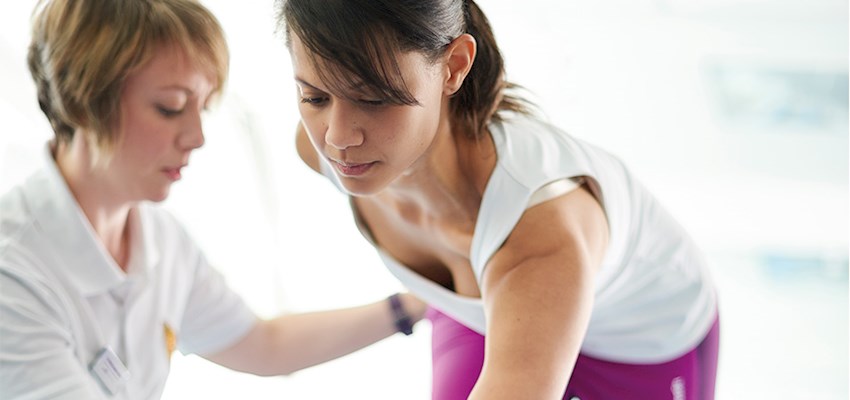Running injuries
Common Injuries and musculoskeletal Problems experienced by Runners
Find our more about how running injuries are treated.
Types of running injuries
Runners can be prone to various kinds of injury because of the biomechanics and repetitive nature of the sport. In particular, people new to running are more likely to pick up injuries.
Common running injuries include:
- knee problems - such as iliotibial band friction syndrome, runner's knee and patellofemoral (kneecap) pain
- lower leg problems - such exertional pain, a.k.a. ‘shin splints’
- groin pain
- hip pain
- stress fractures
Symptoms, diagnosis and treatment
-
Running Injury Symptoms icon plus
Running injuries can present with a variety of symptoms. Runners may experience pain and stiffness first thing in the morning and after training, in conditions affecting tendons (e.g. Achilles and patella tendinopathy).
Iliotibial band friction syndrome is a problem affecting the side of the knees, and runners may experience feeling a well-localised pain that increases in intensity the further they run. Going up and down stairs may be painful after running.
Exertional lower leg pain (a.k.a. ‘shin splints’) may give the runner an uncomfortable shin and calf pain, that feels as though the muscles are very ‘pumped-up’.
Stress fractures, which can occur in pelvis, legs or feet, can present in a confusing way with pain and that comes and goes in an area. It’s often felt more on hopping and is sometimes noticeable at night time.
-
Screening and diagnosis icon plus
Your consultant will assess you in detail, and you'll be asked about your symptoms, your current training and past injuries, and you'll be examined carefully. This may include examining how you walk or run, and an assessment of your biomechanics and sometimes strength and balance.
You may be required to undergo an investigation such as MRI scanning (e.g. to detect stress fractures or identify the cause of hip or groin pain). Sometimes the diagnostic testing may include ultrasound scanning (e.g. when assessing Achilles or patella tendon problems).
-
Potential treatment options icon plus
The treatment of the injury will depend on the particular condition. Stress fractures may require a period of time to be ‘off-loaded’, using crutches or sometimes a boot to restrict movement. This would be followed by a period of rehabilitation with a physiotherapist or osteopath.
Tendon over-use injuries typically need a specific loading programme as part of their rehabilitation, and a course of shockwave therapy may be advised. Iliotibial band friction syndrome may be treated with a corticosteroid injection, followed by rehabilitation.
Exertional lower leg pain (a.k.a. ‘shin splints’) will frequently be treated with physiotherapy or osteopathy. You may be advised to undergo gait analysis with a sports podiatrist, to assess whether you may need changes made to your footwear, such as different trainers, or orthotics to help movement and force distribution.
Many running injuries occur as a result of strength deficits, poor running style and training errors, and you may be given advice on how to optimise these. Your clinician may also recommend a referral to a sports dietitian or nutritionist, or a sports psychologist.
Running injured




Our sports specialist consultants
At each location each consultant is supported by a team of clinical specialists including physiotherapists, dietitians and radiologists.




Our sports injuries locations
From diagnostic scans to minor procedures, medical management and complex surgery, we provide exceptional care for those with sports injuries across our network of hospitals, outpatient centres and specialist clinics.
Book an appointment
Our team can help with any enquiries or you can make an appointment with one of our experienced consultants.
Call us today
020 7079 4344